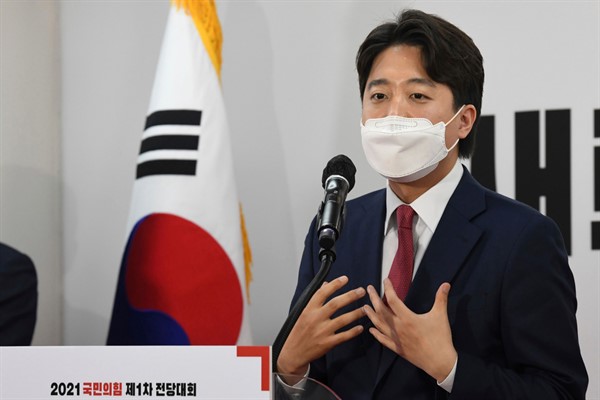In the staid world of South Korean politics, a 36-year-old entrepreneur with no experience in public office is a highly unconventional choice to head up a major party, yet that is who the conservative opposition People Power Party chose as its leader at its convention earlier this month. Lee Jun-seok entered the race as an underdog but went on to best four well-established rivals, including two veteran lawmakers, and become the youngest-ever leader of a mainstream political party in the history of South Korean democracy.
Lee takes the PPP’s helm at a pivotal time, as the party gears up for the March 2022 presidential election. Incumbent President Moon Jae-in and his progressive Democratic Party have faced a political backlash in recent months, mainly from young South Korean voters in their 20s and 30s. Much of their discontent is fueled by skyrocketing housing prices and an economic playing field that seems tilted against them. Apartment prices in Seoul have spiked 60 percent since Moon took office in 2017, one of the fastest rates in the world. And nearly one-quarter of South Korean youth in the labor force are unemployed or underemployed, compared to the overall rate of 13.5 percent.
Moon and his fellow Democrats are also still dealing with the fallout from a sweeping insider land-trading scandal that became public in March, in which 10 officials from the Korea Land and Housing Corporation are suspected of using privileged information to profit from government housing programs. The incident sparked an investigation by the country’s anti-corruption commission into illegal land speculation, which has so far implicated 12 ruling-party lawmakers. A recent Gallup Korea poll put Moon’s approval rating at 38 percent, down from a high of 71 percent in May 2020, while the PPP’s approval rating climbed to 30 percent, its highest since 2016.

